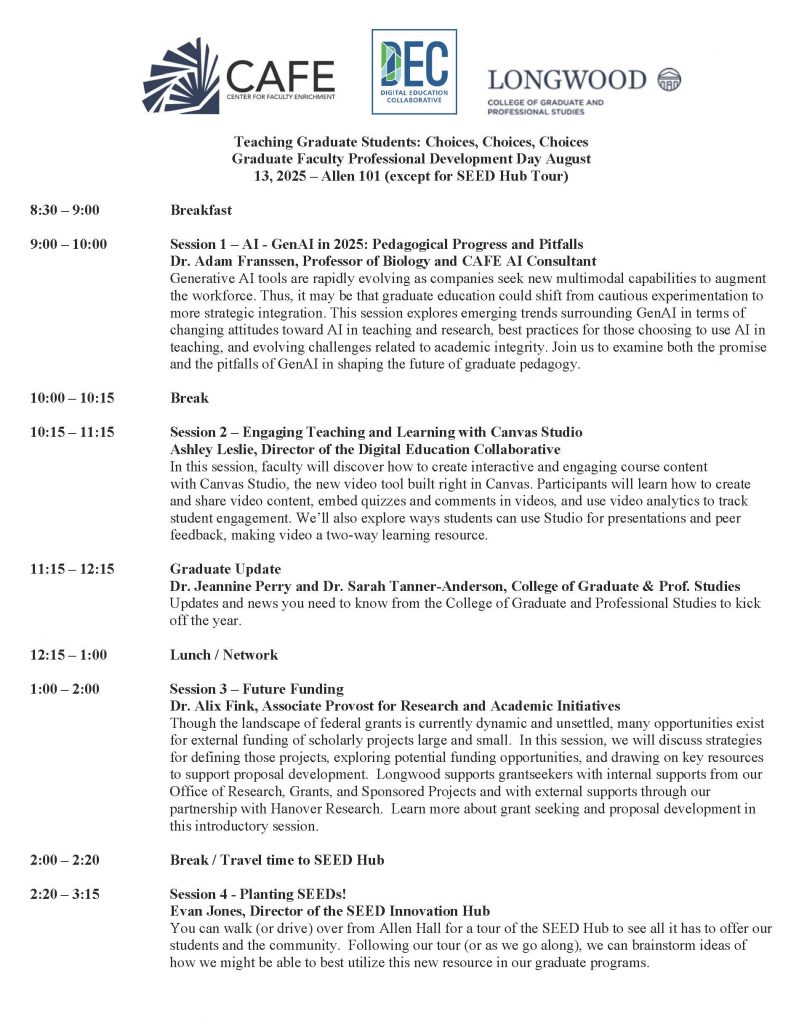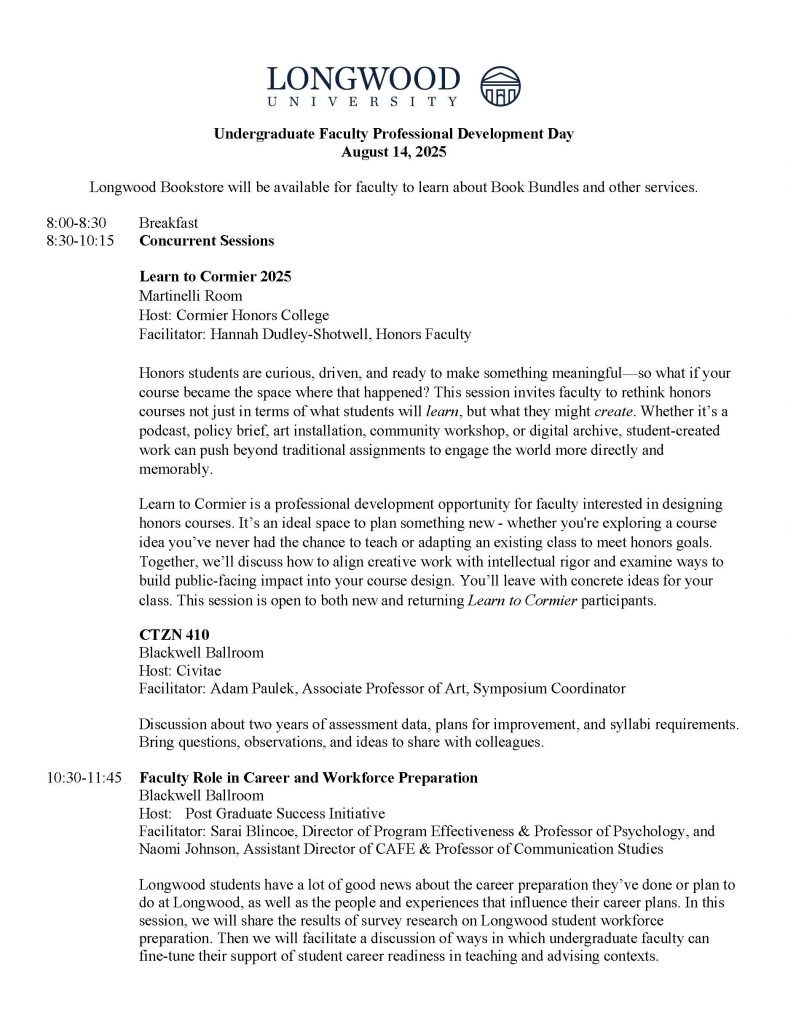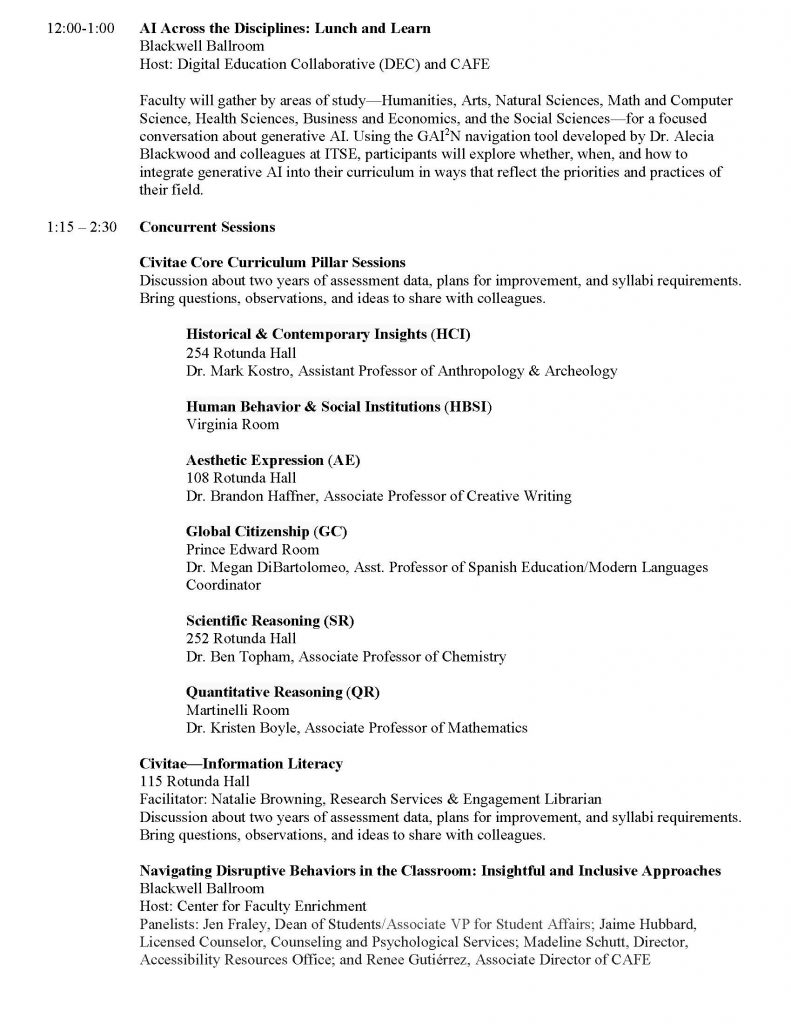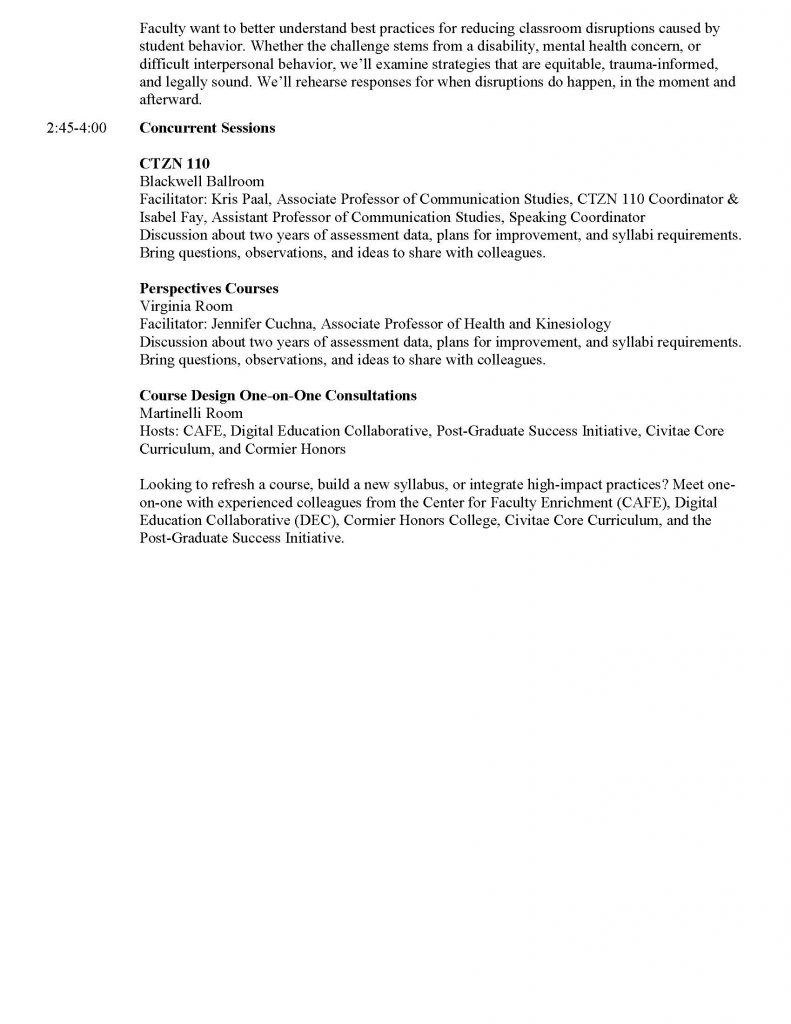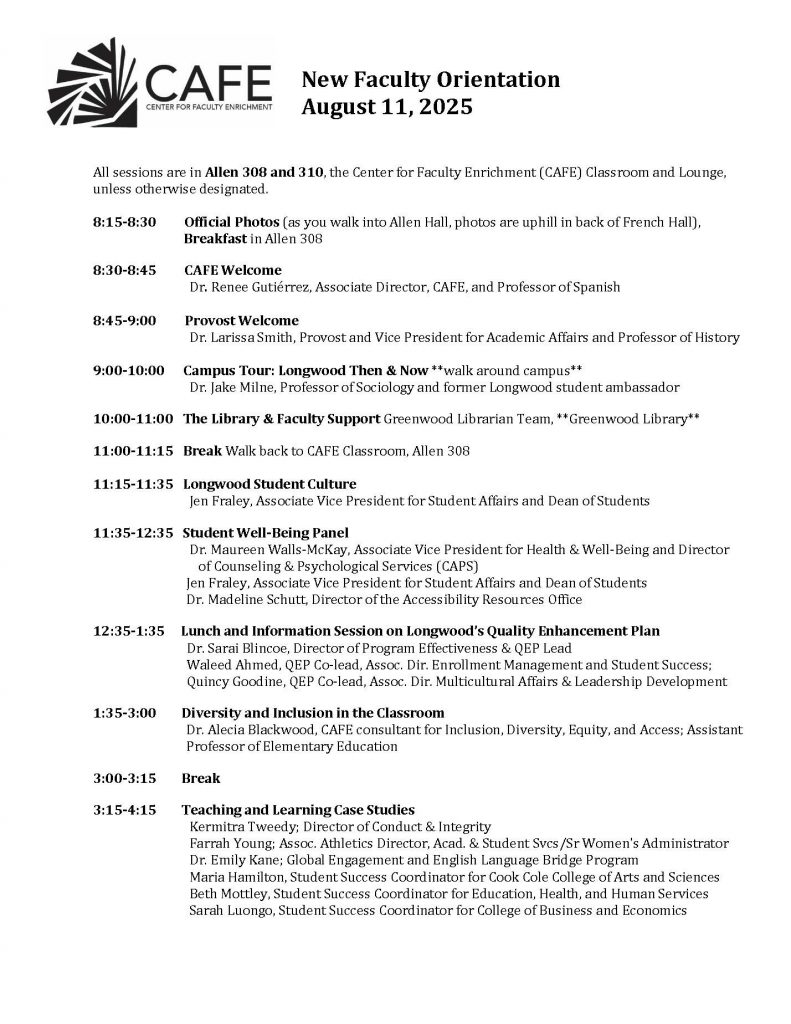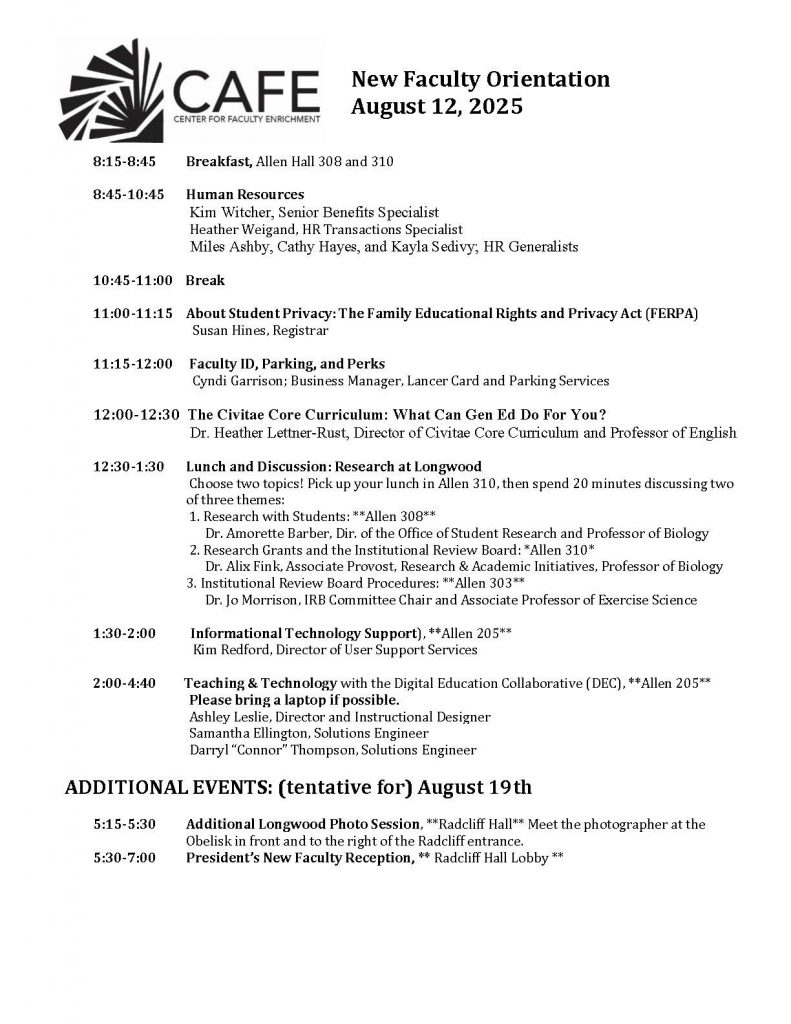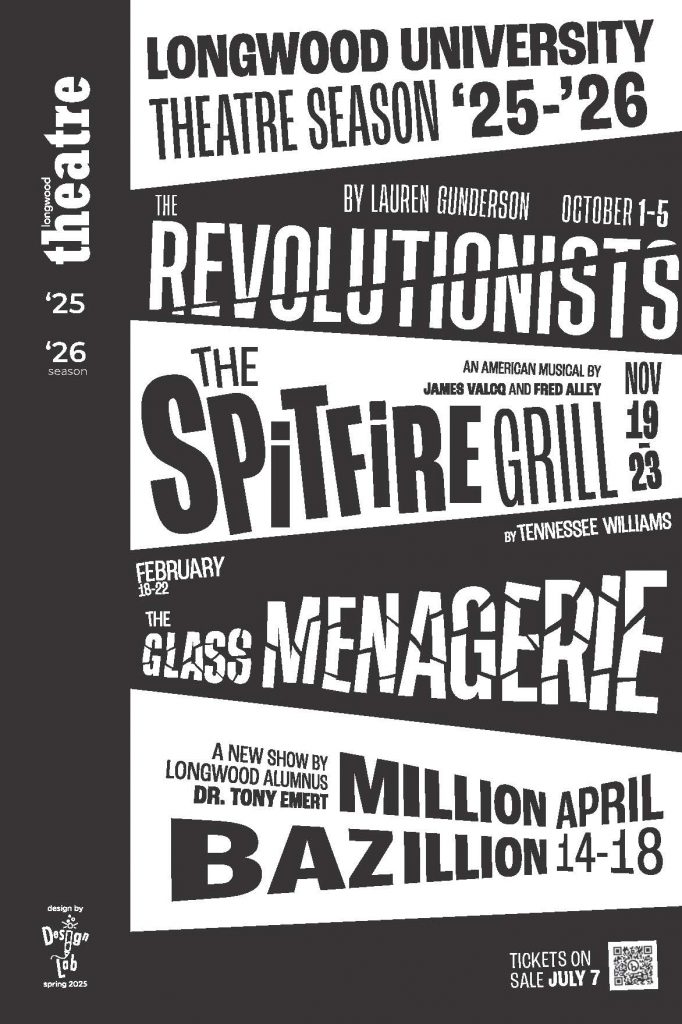Nobody knows Commencement like Judith Campbell knows Commencement. As the director of university events and ceremonies at Longwood, she is in charge of all Commencement planning/logistics/communications, etc.
So I thought it might be helpful if I asked her some questions that could be on the minds of parents and other guests who plan to attend the ceremony on Saturday, May 17.
First and foremost: “My biggest tip is that parents make sure their student has been reading (and sharing with them) the emails we send every month with updates,” Campbell said. “Be sure to ask your student to share with you the last email, which goes out on Monday, May 12.”
Below are Campbell’s answers to some other pertinent questions.
What time should students arrive at Willett Hall prior to the ceremony?
Graduating students, dressed in their academic regalia, need to report to Willett Hall, through the Brock Commons entrance, at 8 a.m. Saturday. The undergraduate ceremony begins at 9:30 a.m. Graduates will line up in Willett and process from there to Wheeler Mall for the ceremony.
Can parents come with students into Willett Hall?
To facilitate a smooth and quick check-in process, it is imperative that guests proceed directly to Wheeler Mall. Please do not go with your student into Willett Hall.
How can I help my student Commencement morning?
Ask your student if they would like you to hold onto any items for them before they go to Willett. There will be nowhere to store totes, purses or backpacks in Willett, so your student should hand those items off to you or one of their other guests before they go into Willett.
Are tickets required?
Tickets are not required, and there is no limit on the number of guests a graduate can invite to the outdoor ceremony on Wheeler Mall. (Information about inclement weather plans has been shared with your graduate in those emails mentioned earlier in this post.)
What time should parents and other guests arrive at Wheeler Mall?
We ask that all guests be seated by 9 a.m. When the ceremony starts, we ask that guests stay clear of the walkways so that those processing can easily pass by. People jumping into the walkways to take pictures holds things up!
Is there assigned seating?
Designated seats are reserved for graduates. Other than that, seating is open and available on a first-come, first-served basis.
Where are the best places to park to catch a shuttle to Wheeler Mall?
Shuttle service will run loops between two off-campus locations from 7:30-9:30 a.m. and from noon to 1 p.m. Guests are welcome and encouraged to park in the lots noted below for easy and close drop-off access to the ceremony location. The shuttle will run loops through the Sunchase Apartment complex.
—Sunchase Shopping Center, 215 Sunchase Boulevard, Farmville, VA 23901
—Lancer Park, 200 Cormier Drive, Farmville, VA 23901
What other parking is available?
Multiple central campus lots will offer both general parking and ample ADA-accessible specific parking. All parking is available on a first-come, first-serve basis and no reservations are required. Parking lots are shown on this map: Undergraduate Commencement Parking Map (pdf). There is no need to make a reservation.
What if a member of our party is handicapped?
Attendees who have Americans with Disabilities Act (ADA) specific needs should park in a central campus-accessible-identified lot because shuttle vehicles are not equipped with lifts. See the parking map for the location of these lots: Undergraduate Commencement Parking Map. Golf carts will be available from the ADA lots for those with accessibility needs in getting to and from the ceremony area.
What should guests wear?
Virginia weather can be tricky. Also, there is very little shade on Wheeler Mall. We recommend dressing for the weather, wearing sunscreen and bringing a hat.
What should guests bring with them to the ceremony?
We recommend bringing a hat, sunscreen and water.
What should guests NOT bring to the ceremony?
Please do not bring to the ceremony umbrellas, alcohol, air horns, beachballs, bubbles or any other items that may become distractions for other attendees and disrupt the reverence of the ceremony. We have 7,000 chairs set out in the ceremony area, so there’s no need to bring lawn chairs.
About how long will the ceremony last?
The ceremony usually lasts about 3 hours.
Is there somewhere on campus guests can watch the ceremony in an air-conditioned space?
Guests are welcome to watch the ceremony in Jarman Auditorium, Blackwell Ballroom (in the Maugans Alumni Center) or Soza Ballroom (in the Upchurch University Center). The ceremony will be live-streamed in these locations.
If I’m not able to attend the ceremony, is there a way I can watch it live from where I am?
Yes! On the morning of the ceremony, you can watch the ceremony live on the Commencement homepage or you can go to go.longwood.edu/live .
Will there be a lot of traffic after the ceremony?
Generally, we don’t find there to be heavy traffic after the ceremony because parking is equally distributed across campus. Also, many guests and graduates stay after the ceremony to take photos. All this makes exiting campus after the ceremony relatively easy.
Additional information about Commencement can be found online here: https://www.longwood.edu/commencement/undergraduate-ceremony/
—Sabrina Brown
